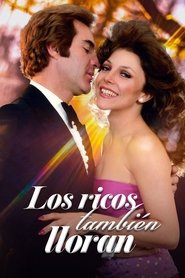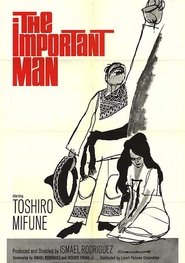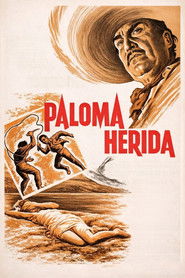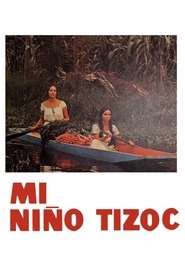
Columba Domínguez
Columba Domínguez Adalid (March 4, 1929 – August 13, 2014) was a Mexican film actress. Considered a crucial figure in the Golden Age of Mexican cinema. Considered one of the muses of the film director Emilio Fernández, who, moreover, was romantically linked for several years. She is remembered particularly for her performance in the film Pueblerina (1949), considered one of the jewels of the Mexican Cinema. Columba Domínguez Adalid born on March 4, 1929 in Guaymas, Sonora, Mexico, reaching very young with her family to the Mexico City. When she went to a party with one of her sisters, was discovered by the Mexican film director Emilio Fernández, who was amazed by her beauty with very marked Mexican features and gives you entry to a movie with little roles in films such as La perla (1945) and Río Escondido (1947). In 1948, Fernandez give her the antagonistic role in the film Maclovia (1948), with María Félix. Her performance is praised by critics and thanks to this film, Fernández entrusted with the leading role that would become her best film: Pueblerina (1948). Thanks to this movie Columba rises the stardom rapidly and becomes known worldwide to be presented at the Karlovy Vary International Film Festival. In that same year she participated in La Malquerida, with Dolores del Río and Pedro Armendáriz. Preceded by the success of Pueblerina, Columba was contracted in Italy to participate in the film L'Edera (1950).[1] The same year, she filming Un día de vida, which went unnoticed in Mexico, but became a huge success in the former Yugoslavia, released in 1952. Encased in native roles, Columba separates professionally Fernandez in 1952, which allowed them to become one first figure and work under the orders of other filmmakers, such as Luis Bunuel (with whom she worked in El río y la muerte (1955)), Fernando Méndez (director of the cult film Ladrón de cadáveres (1957), considered one of the best Mexican horror films) and Ismael Rodriguez (who took her to star in two masterpieces: Los Hermanos de Hierro (1961) and Ánimas Trujano (1962), with the Japanese actorToshiro Mifune), among others. In 1962 she participated in El tejedor de milagros, a film that represented Latin America in the IX Berlin Film Festival. Columba also made the first official nude in the Mexican Cinema in the film La virtud desnuda. (1956). In the television, Domínguez participed in some telenovelas like La tormenta (1967) and El carruaje (1972). Her last appearance in the television was in Aprendiendo a amar(1979). After her retirement in 1987, Columba was devoted to dance, humanistic art, painting (coming to exhibit in Europe) and piano. In 2008, after more than 20 years of retirement from cinema, the Mexican director Roberto Fiesco, returned her to the cinema with the short film Paloma. That same year, Dominguez was honored by the International Film Festival de la Frontera, in Ciudad Juarez, in which some of the most representative titles in which he participated were projected.[2] In 2010, Domínguez made a special appearances in the films La cebra and Borrar la memoria.[3] In 2012, she participates in the film El último trago. In May 2013, Columba Domínguez was honored with the Golden Ariel Award for her contributions to the Mexican film industry.
Known For
Credits
- 2014 · Ramona as Ramona
- 2010 · Borrar de la Memoria as Mamá de Roberto
- 2008 · Paloma as Paloma
- 1987 · Arriba Michoacán as
- 1986 · Victimas de la pobreza as
- 1982 · Una gallina muy ponedora as
- 1979 · Los ricos también lloran as María
- 1978 · Soy el hijo del gallero as
- 1972 · Mi niño Tizoc as
- 1968 · Ambición sangrienta as Regina Villegas
- 1966 · Marcelo y María as
- 1966 · Duelo de pistoleros as
- 1965 · Adventure at the Center of the Earth as Laura Ponce
- 1965 · The She-Wolf as Marcela de Fernandez
- 1965 · El hombre propone... as
- 1965 · Lawless Youth as Sra. Silva
- 1965 · Llanto por Juan Indio as
- 1964 · La sombra de los hijos as
- 1964 · Furia en el Edén as Meche
- 1963 · Wounded Dove as Amalia
- 1963 · The Paper Man as Señorita Directora de casa hogar
- 1962 · Miracles Weaver as Remedios
- 1962 · Little Town as Asunción
- 1961 · The Important Man as Juana
- 1961 · My Son, the Hero as The Widow
- 1961 · Enterrado vivo as
- 1961 · Duelo indio as Xochicalpa
- 1961 · El tiro de gracia as
- 1960 · Viva la parranda as
- 1960 · Mundo, demonio y carne as
- 1958 · Bread, Love and Andalucia as
- 1957 · Tragic Cabaret as Simona
- 1957 · The Body Snatcher as Lucía
- 1957 · El caudillo as
- 1957 · La virtud desnuda as Teresa
- 1957 · Five lives and one destiny as María Flores
- 1956 · Unfaithful Wives as
- 1956 · People, Song and Hope as
- 1955 · La fuerza de los humildes as
- 1955 · Historia de un abrigo de mink as Dora
- 1954 · The River and Death as Mercedes
- 1953 · Reportaje as Petra
- 1953 · Mujeres que trabajan as Isabel Villada
- 1952 · When the Fog Lifts as Ana
- 1952 · The Sea and You as Julia
- 1951 · La bienamada as
- 1950 · Devotion as
- 1950 · One Day of Life as Belén Martí
- 1949 · The Unloved Woman as Acacia
- 1949 · Pueblerina as Paloma
- 1948 · Maclovia as Sara
- 1948 · Hidden River as Merceditas
- 1947 · The Pearl as
- 1946 · Pepita Jimenez as Joven andaluza (uncredited)



